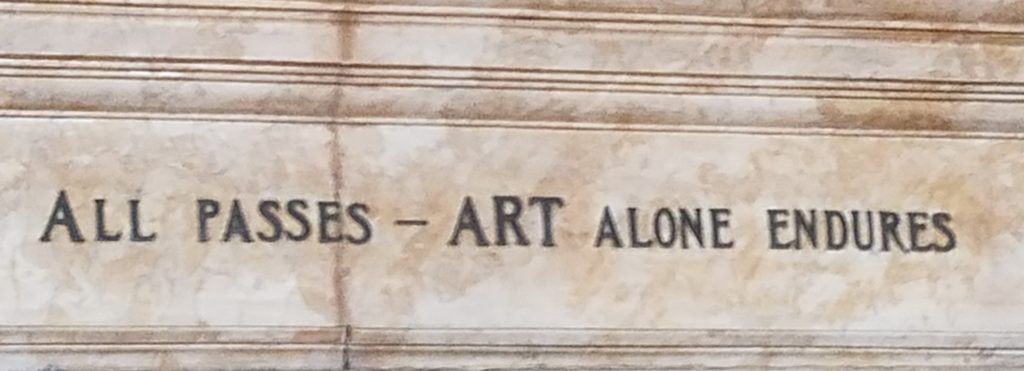“Through persistent dedication, Susan B. Anthony, and other remarkable leaders, women were finally granted the right to vote in 1920.” Louise Slaughter
One hundred years ago this month, women in the United States were granted the right to vote. I say “granted” because that’s what many folks say, like the right to vote was a wish “granted” by a Fairy Godmother. In reality, the right to vote for women was fought for and marched for and WORKED for, over many years. White women were finally able to vote in 1920 but their Sisters of Color struggled for decades after to achieve suffrage. It would be lovely to say—and wrong—that women suddenly gained equal rights in every aspect of their lives in 1920 but the struggle goes on for many, even now.
During the month of August, Choral Potpourri/Choral Ethics will speak to the rights of women and what that means to us, as musicians and leaders. But first, let’s look at the way’s things have been in the past.
Classical music, along with most other types of music, has always been sexist. Women were not encouraged to perform or compose or, for goodness sake, to conduct. If you were someone’s sister, such as Nannerl Mozart or Fanny Mendelssohn, you were tolerated or treated as some sort of clever novelty until you married and stopped performing, even if you had been more of a prodigy than your darling Baby Bro. And if you were married, such as Clara Schumann, whatever you did was chalked up to being married to a genius; never mind you composed, taught and performed (she was a prodigy BEFORE she married) to put food on the table for your seven (or was it eight?) children—Clara was the definition of a working musician! Amy Beach never went by that name once she married, even AFTER her husband died (she attempted to go by “Amy” but was asked if she was her own daughter!) and was always known as Mrs. H.H.A. Beach in her lifetime. Ruth Crawford Seeger stopped composing (check out her string quartet) to be assistant to her ethnomusicologist husband, Charles Seeger, though put together several collections of children’s songs with her own settings.
Women opera singers, when women were finally allowed to perform in public, were often assumed to be “Strumpets” or “Tarts” much like their non-singing actress or dancing counter-parts were. The morality of women, no matter if they sang or played an instrument or danced, was the subject of more than one tittle-tattle of the time, especially during the 19th century, as women began to demand their rights as full-fledged citizens. And getting back to Amy Beach, using your husband’s name with “Mrs.” gave you a respectability, since if your husband “allowed” you to perform or compose, you must not be a Tart!
I’ve had my own interesting and sexist experiences as a woman choral conductor. I hadn’t wanted to be a choral conductor, but a ballet conductor, and was told “girls don’t conduct orchestras.” Someone on the board of a local orchestra once told me TO MY FACE they didn’t like how my “rump” looks when I conduct. Someone else wondered aloud, in front of me, if I really could be a conductor because they weren’t sure women could conduct. One of my singers, in a long-ago church choir, wanted to know if he should call me a “conductrix” or if I liked “directoress” better (by the way, I told him “conductor” or “director” was just fine). At one church job interview when my youngest son was about seven, I was asked if I planned to have more children. I have several In-Laws who believe my spouse (a lovely man and a physician) knows more about conducting than I do because he loves music and he’s a man. None of this would have happened to me if I were a man.
Yes, I’m a conductor and have studied long and hard to do what I do, so why the doubt? Is it because of the way I look? Is it because my voice is high? Is it because of my gender or that I’ve had children? Or is it that I do not fit most people’s vision of what—and who—a conductor is?
Many of you have had similar experiences to mine and have shared them with me for years. Through the next few weeks, I’ll be sharing some of these stories from ChoralNetters about their own sexist experiences in Classical Music. The last Thursday of August, I hope to share my vision for women in Classical Music and the Choral Arts going forward. Please share YOUR IDEAS with me and I’ll include them in that blog:
Until next week—be well and be safe!
I am taking my Choral Ethics Blogs to my chamber choir’s Facebook page for the foreseeable future. Please join me there this morning!



Leave a Reply
You must be logged in to post a comment.